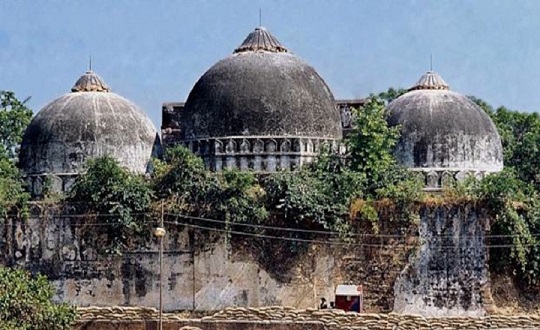Supreme Court declines to refer Ayodhya dispute to larger bench
The Supreme Court on Thursday declined to refer the Ayodhya land dispute case to a larger Constitutional bench. The top court said that it will begin hearing on Ayodhya matter from October 29,2018 to decide the suit on merit.

New Delhi: The Supreme Court on Thursday declined to refer the Ayodhya land dispute case to a larger Constitutional bench. The top court said that it will begin hearing on Ayodhya matter from October 29,2018 to decide the suit on merit.
Announcing its verdict on the issue of reference of Ram Mandir- Babri case to a larger Bench, Supreme Court held that all religions and religious places need to be equally respected. "Ashoka's Edicts preach tolerance to faith of others," said Justice Ashok Bhushan as he read out the verdict.
The court pronounced this decision on the limited aspect of whether the law laid down by the Supreme Court in its 1994 judgment in Ismail Faruqui case should be revisited by a Constitution Bench. The court heard arguments on whether the 1994 Ismail Faruqui judgment should be referred to a larger bench and if it involves constitutional questions.
Also Read: Adultery is unconstitutional, says Supreme Court
Also Read |
Babri demolition case: Tenure of special judge extended
Justice Ashok Bhushan said that there were two opinions on the matter -- one by Justice Bhushan and CJI Dipak Misra and another by Justice S. Abdul Nazeer. While Justice Ashok Bhushan and Dipak Misra said no exception can be taken to 1994 observations, Justice Nazeer dissented from majority verdict and said a larger bench needs to decide what constitutes essential religious practice.
In 1994, a five-judge Constitution bench had held that namaz could be offered anywhere and that a mosque was not an "essential part of the practice of the religion of Islam".
In the Ismail Faruqui judgment, the Supreme Court had held that while offering of prayer or worship is a religious practice, offering prayer at every location where such prayers can be offered would not be an essential or integral part of such religious practice unless the place has a particular significance for that religion so as to form an essential or integral part thereof.
Also Read: SC upholds constitutional validity of Aadhaar
Also Read |
Ayodhya dispute: Mediation panel files memo in Supreme Court for resumption of talks
The case was heard by a Bench of Chief Justice Dipak Misra and Justices Ashok Bhushan and S Abdul Nazeer. On July 20, a three-judge bench of the Apex Court reserved their judgment on the issue.
The Ram Janambhoomi-Babri Masjid case is pending before the Supreme Court for the last eight years since the 2010, Allahabad High Court decision ruling for a three-way bifurcation of the disputed 2.77 acres of land was challenged in the apex court by involved parties. (ANI)
 Dynamite News
Dynamite News 